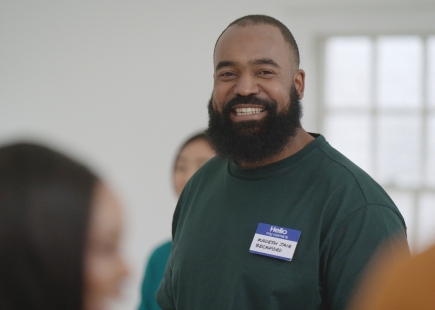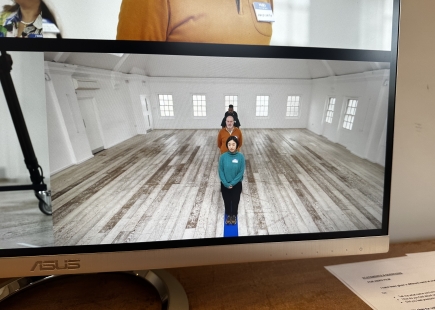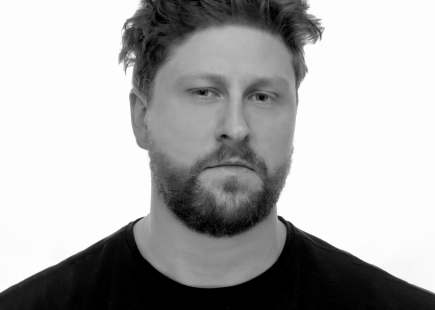The Fine Line: Real people highlight the importance of balance when it comes to name bias

When I was working at Ketchum UK, I had the opportunity to create a film for Samsung about name bias, a subject that rarely gets the attention it deserves. For me, it's personal.
My own name, Wojciech, has shaped my experiences in London over the past fifteen years in countless subtle ways. From the number of times I’ve been asked if I have a nickname, to the well-meaning suggestions that I might consider an “easier” or more “English-sounding” alternative. I know how it feels when your name is treated as something to work around. But names are more than words; they’re part of our identity, heritage, and culture, something we carry proudly wherever we go. If we want to build spaces where people truly feel welcome, surely we can start by accepting their names as they are?
The project began with a striking statistic from Samsung’s research: nearly a third of UK adults have felt judged by their name, rising to 53% for people from minority ethnic backgrounds. That’s millions of real, lived experiences. And it’s a reality I understand all too well.
Our brief was to capture the full breadth of name-based experiences in the UK, from the most common to the less familiar, in a way that felt authentic and revealing, not preachy. We knew that contrast would be key, so we brought together people from both ends of the spectrum: those with very common British names, like David Smith, alongside people with names far less common in the UK, like Izevbuwa. That mix gave the piece the range it needed.



Casting was one of the most fascinating parts of the process.
We worked with a combination of everyday people willing to share their experiences on camera and others whose professional expertise brought unique insights into the subject. Among them was a professor who studies name bias in her day-to-day work, as well as people whose perspectives came from navigating it in daily life — in job applications, introductions, and those small but telling moments where a name shapes perception.
Creatively, we wanted something visually simple but powerful. We arrived at The Fine Line: a clean, social-experiment-style setup that gave our cast a clear space to express themselves. The line became a metaphor for the balance between inclusion and exclusion, both in the workplace and in society.
It wasn’t about staging drama or engineering reactions — it was about creating a space where honest opinions could be shared openly.
The results spoke for themselves.
The campaign generated 382 pieces of coverage, more than 15,000 views on YouTube, and was recognised by Samsung Global as one of the top three best-practice DE&I campaigns of 2024. For me, the most meaningful impact came when my Polish friend Szymon told me that after his colleagues saw the film, they began making a conscious effort to pronounce his name correctly. That kind of small, human change is the real proof of impact beyond the coverage, reach, and awards.
Looking back, I think The Fine Line resonated because it put real people and real experiences at its heart. It didn’t overcomplicate the subject or try to speak louder than the voices it featured.
Instead, it gave those stories the respect and space they deserved — and in doing so, it showed that sometimes the smallest shifts in behaviour can leave the biggest mark. If a single conversation, introduction, or meeting now starts with someone asking, “Could you tell me how to pronounce your name?” — then the work has done exactly what it set out to do.
Credits:
Creative Director: Luke Walker
Creative: Donya Pandkhahi
If you enjoyed this article, you can subscribe for free to our weekly email alert and receive a regular curation of the best creative campaigns by creatives themselves.
Published on:




